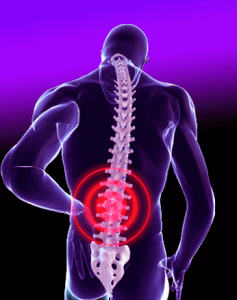What is
Failed Back Surgery Syndrome
Failed back surgery syndrome (FBSS) refers to chronic back or neck pain, with or without extremity pain, that can occur if a spine surgery does not achieve the desired result. Contributing factors to pain that returns following spine surgery include but are not limited to recurrent disc herniation, further degeneration causing pressure on a spinal nerve, altered joint mobility, scar tissue around or within the nerves, muscle de-conditioning, facet joint degeneration or sacroiliac joint degeneration. Common symptoms associated with Failed Back Syndrome include diffuse, dull and aching pain involving the back and/or legs. Patients may also complain of sharp, pricking, burning or stabbing pain in the extremities.

How do you Screen and Diagnose Failed Back Surgery Syndrome?

The physician will review the treatment history, particularly the type of surgery (or surgeries) done and for what reason. Particular attention is paid to the result of the surgery and how the patient’s symptoms have evolved following the surgery. A physical examination will also be done. X-rays, MRI and computed tomography (CT) or myelogram-CT may be ordered.
Treatment for failed back surgery syndrome may include physical therapy, nerve blocks, medications, injections or a chronic pain management program. If the pain is possibly coming from the facet or sacroiliac joints, chiropractic care may be recommended. Correctable structural problems are sought and, if identified, additional surgery may be recommended to address these issues with Failed Back Syndrome. This may include facet joint or sacroiliac joint rhizotomy, spinal fusion, or sacroiliac joint fusion. Sometimes no correctable cause of the patient’s symptoms with Failed Back Syndrome is identified. In these cases, spinal cord stimulation (SCS) or narcotic pumps may be used for pain control. It is important to discuss treatment options with your doctor in deciding which treatment, if any, may be best for you.
What are the Treatments for Failed Back Surgery Syndrome?

Request An APPOITMENT
Fell free to contact us with any questions or concern regarding Back/Neck pain.